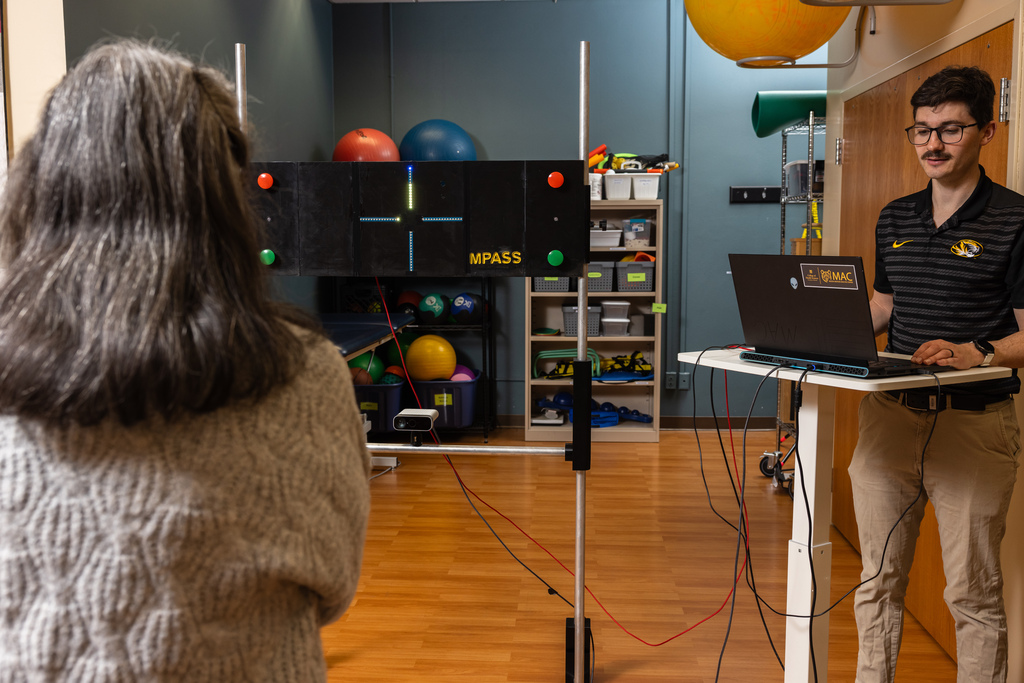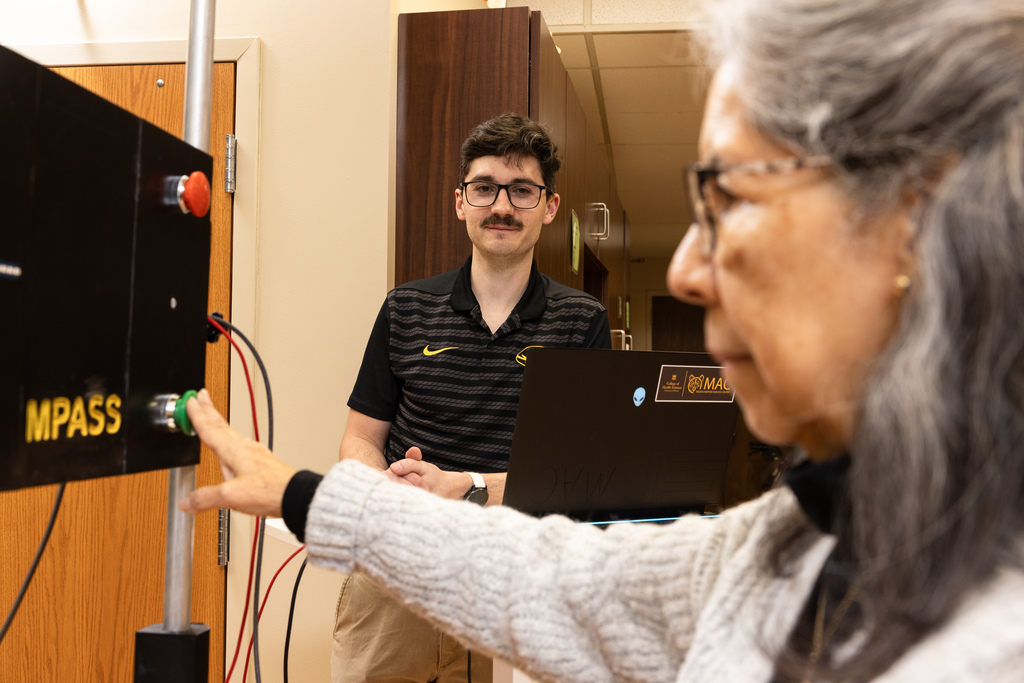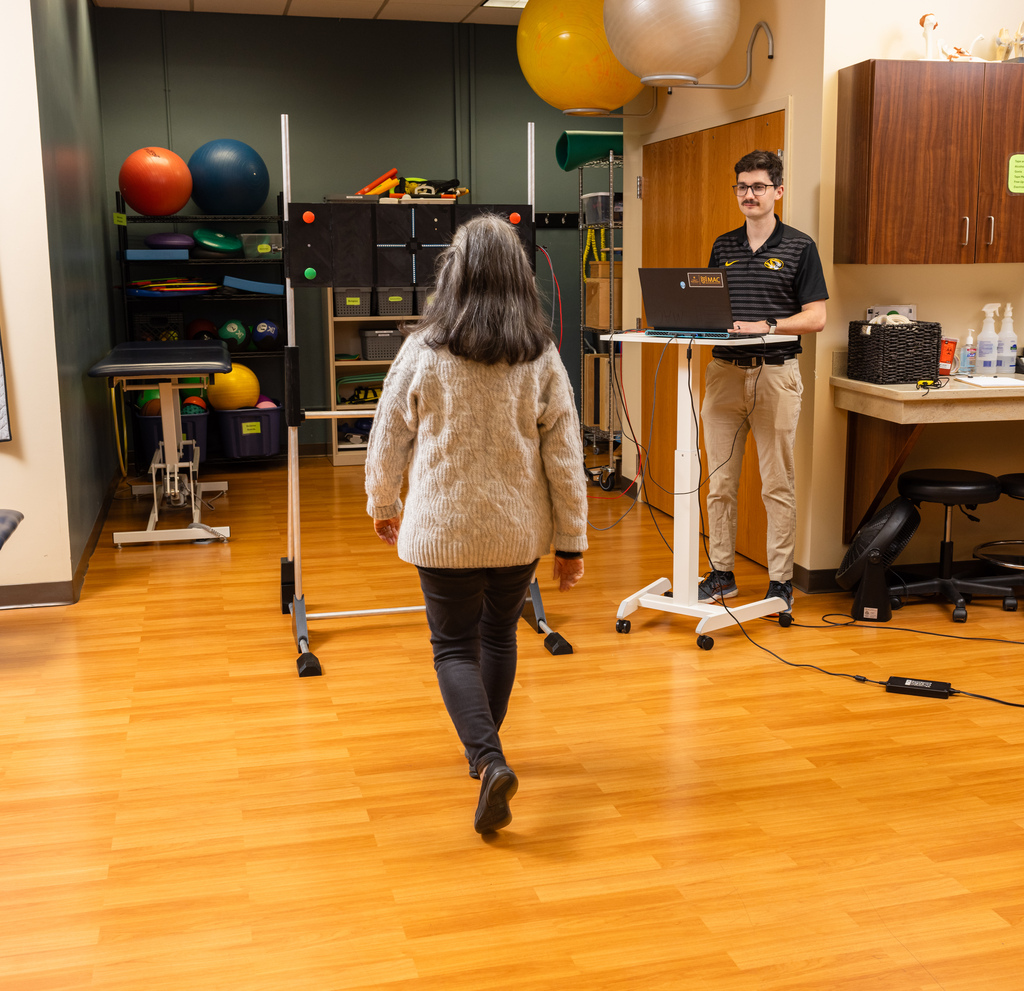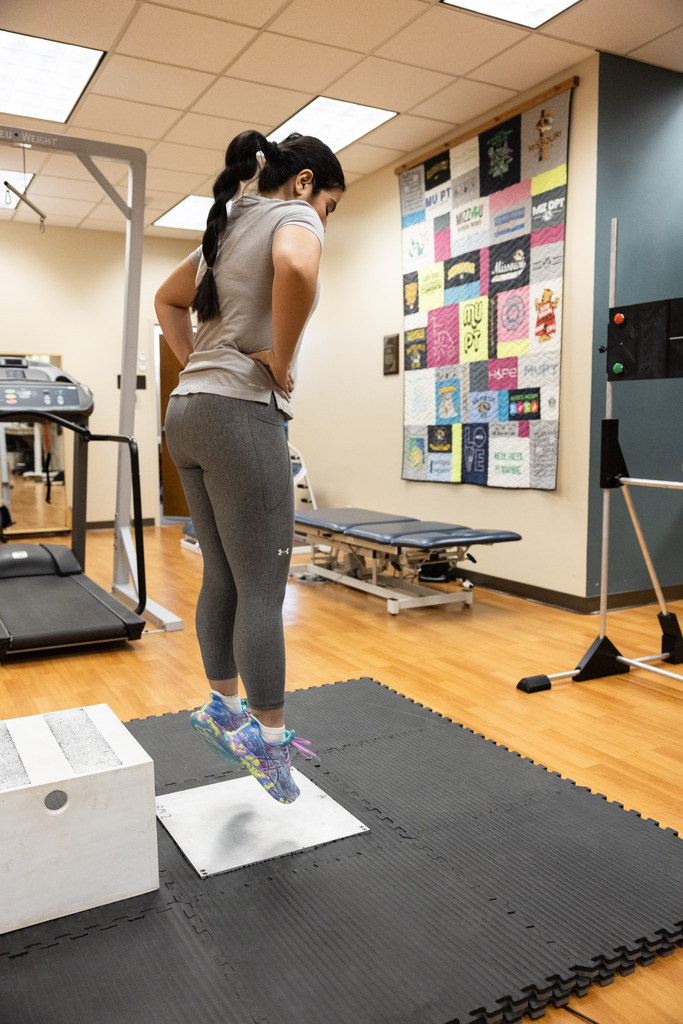
MPASS: Mizzou Point-of-care Assessment System
The Mizzou Point-of-care Assessment System or MPASS (Patent Pending) provides portable in-clinic assessments that incorporate multiple aspects of motor function including static and dynamic balance, reaction time, and athletic movements. The platform includes microphones, speakers, and LED displays to easily incorporate and assess cognitive dual tasking, such as visual cues for unanticipated movement. MPASS assessments support management of a broad spectrum of movement related disorders including: Sports Applications (e.g. Return-to-play/Rehabiiltation) and Clincal Applications (e.g. Cognitive impairment, Concussion, Joint Arthroplasty, and Cerebral palsy). The MPASS combines lightweight portable force plates, markerless motion capture, and reaction time measurements to provide a more affordable and a more precise multi-dimensional assessment solution. The system is designed to be inexpensive and portable and MPASS motor function assessment sessions typically take less than 15 minutes.



MPASS in the News
MU researchers create new concussion assessment system KOMU 8 News, September 25, 2025New portable tool removes the guesswork from diagnosing a concussion Columbia Missourian, September 24, 2025
Portable AI System Can Help Detect Brain Decline U.S. News& World Report, March 21, 2025
Portable movement test uses artificial intelligence to detect early signs of cognitive decline PsyPost, March 29, 2025
Can AI help detect cognitive impairment? Show Me Mizzou, March 13, 2025
Mizzou Motion Analysis Center receives NIH grant to advance cognitive screening Columbia Missourian, March 10, 2025